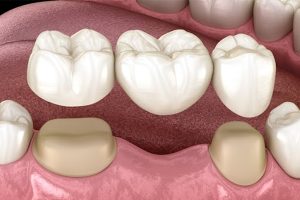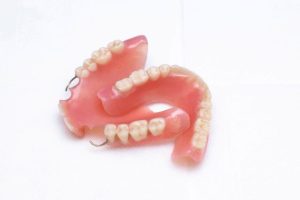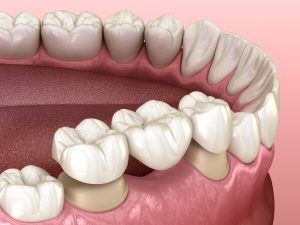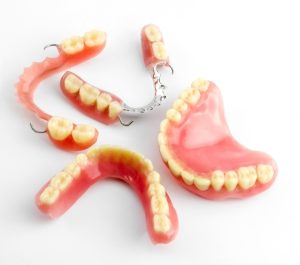Table of content
Tooth loss causes jawbone resorption, affects facial aesthetics, and leads to various dental problems. However, many people hesitate because they are unsure if getting dentures is painful and which method to choose. For answers, please continue reading the article below.
1. [Q&A] Does It Hurt to Get Dentures?
Any direct dental intervention can cause pain or discomfort for the patient. The level of pain varies with different tooth restoration methods. However, dental implants generally do not cause excessive pain or discomfort because modern pain relief techniques are used during the procedure. Additionally, to ensure the implant process is safe and minimizes pain and complications, it is important to choose a reputable dental clinic with highly skilled and experienced dentists.
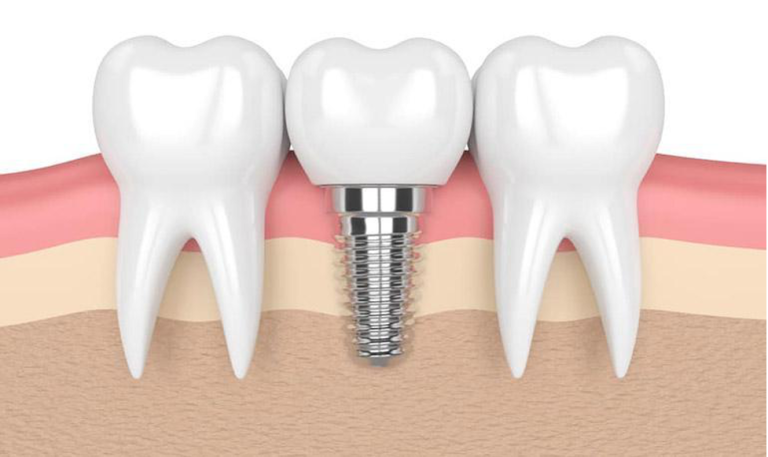
The cost of dentures is a concern for many people who need tooth restoration, want to improve their chewing ability, and enhance the aesthetics of their smile. Currently, there are many methods of dentures with varying prices, making it difficult to choose. The article below will help you understand more…
2. How many methods are there for dentures and what is the level of pain?
The level of pain associated with dental prosthetics depends on the method used. Currently, there are three common methods for restoring lost teeth:
2.1. Removable Dentures
This method is used when patients have lost one, several, or all of their teeth. Removable dentures consist of: artificial teeth (made of plastic or porcelain), a denture base (flexible plastic), and metal clasps.
Level of Pain: The denture base (which supports the artificial teeth) is secured with metal clasps, so it generally causes minimal discomfort.
Advantages: Removable dentures are quick to process, easy to remove and insert, and relatively inexpensive.
Disadvantages: Removable dentures have a short lifespan (they need to be replaced every 3–5 years), are not suitable for chewing hard foods, and can easily become dislodged or uncomfortable. Long-term use may lead to gum recession, jawbone resorption, and facial aging.
2.2. Porcelain Dental Bridges
A porcelain dental bridge consists of several interconnected porcelain teeth placed over the gap of the missing tooth and anchored on two adjacent natural teeth.
Level of Pain: For a dental bridge, the two adjacent teeth to the missing tooth must be healthy, as they will be filed down to serve as supporting abutments. Therefore, if you are wondering whether getting a dental implant is painful, the dental bridge method may cause some initial sensitivity and soreness for the first 1-2 days, which typically decreases over the next 4-5 days.
Advantages: Compared to removable dentures, porcelain dental bridges offer better aesthetic results and improved chewing function.
Disadvantages: The lifespan of a porcelain dental bridge is also around 7-10 years. Additionally, since it does not replace the root of the missing tooth, the jawbone in the missing tooth area may gradually resorb, leading to facial collapse, misalignment of the bite, and loss of facial aesthetics. The natural teeth used as abutments can also become weakened if not properly cared for.
View more: Comparing Dental Implants with other Prosthetic options
2.3. Dental Implants
Dental implants are the most advanced tooth restoration technique available today, providing nearly natural chewing function and aesthetics.
Level of Pain: Getting dental implants is not as painful as many people believe. Before the procedure, the dentist will administer local anesthesia at the implant site. Therefore, during the procedure, patients should remain calm and relax their mouth muscles to ensure smooth execution. After the anesthesia wears off, patients may experience mild discomfort, but the pain will gradually decrease over the next 7-10 days.
Advantages: Dental implants are a modern restoration method that effectively restores chewing function, offers natural aesthetics similar to real teeth, and prevents bone resorption.
Disadvantages: The cost is relatively high, the procedure is complex, and it requires the dentist to have high skill levels and the support of advanced technology to ensure precision in each step.
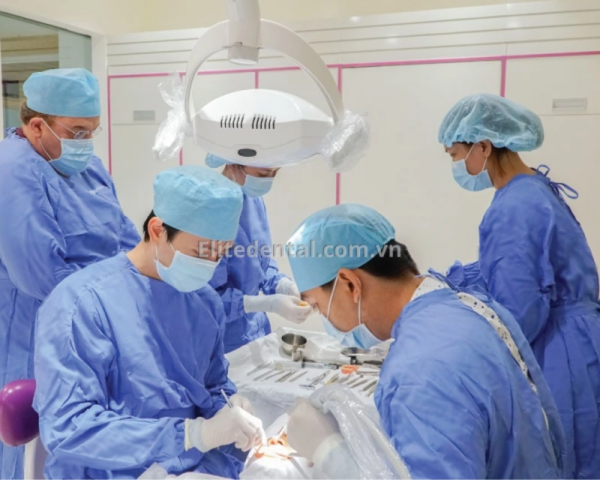
Which tooth replacement method is the best and least painful?
In general, each tooth restoration method has its own advantages and disadvantages. However, dental implants are considered the most advanced solution, recommended by many dentists for tooth loss due to their lifespan of up to 25 years or even a lifetime with proper care. Notably, the implant fixture can replace the natural tooth root, effectively preventing bone resorption. Additionally, dental implants do not affect adjacent teeth, thereby preserving natural teeth as much as possible.
It is important to choose a reputable dental implant clinic with a clear treatment plan. Treatment by highly skilled dentists, along with modern equipment and technology, will minimize pain for the patient and ensure the implant procedure is completed efficiently.
3. Painless and Quick Dental Implants at Elite Dental
Not only known as a center for orthodontics and smile aesthetics, Elite Dental is also a trusted specialist clinic for dental implants.
At Elite Dental, the dentist performing the implant procedures has over 15 years of practical experience and holds doctoral degrees from France and Japan. You can be completely assured that the implant procedure is conducted according to medical standards, using advanced equipment to ensure safety, minimize pain, and shorten treatment time. The team of dentists, with over 15 years of experience in implantology, continuously enhances expertise.
Furthermore, to provide comfort and ensure optimal tooth restoration results for clients, Elite Dental has incorporated digital technology into most implant treatment processes, especially for full arch implants. Specifically:
- 3D Cone Beam CT (CBCT) Scans: Evaluate bone density, soft tissue conditions, and determine implant placement to create an optimal treatment plan.
- Surgical Guides: Help preserve tooth structure, minimize invasiveness, and reduce swelling and pain during surgery.
- 3D Scanning for Impressions: Utilizing PrimeScan and PIC scanning systems, the process is comfortable and pain-free, allowing for quick temporary restorations on the same day and significantly reducing overall treatment time in the restoration phase.
Ms. Kim Hoa – a dental implant patient at Elite, shares: “I am a timid person, so I was very afraid of getting dental work done. However, after consulting with Dr. Lam, I felt completely confident. The medical equipment is clean and sterile, the implant procedure was quick, completely painless, and without swelling. The doctor performed the procedure very smoothly.”
Another patient who experienced the implant technology, Mr. Maciej Ziomek, mentioned that he now enjoys his food more, including ribs and guava, and as a result, his health has also improved.
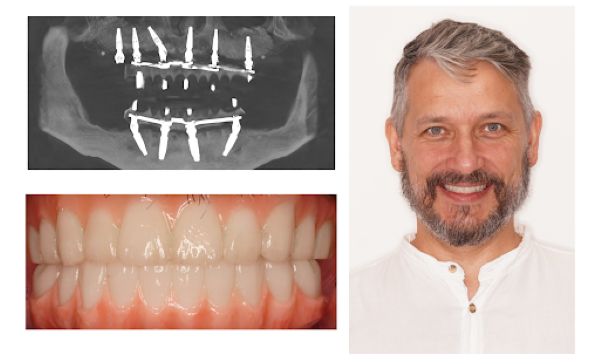
View more: How to care for your Dental Implants: Key steps
4. What should you prepare for a smooth dental implant procedure?
To ensure a smooth and successful dental implant procedure, patients should:
- Clearly communicate current health status with the treating dentist.
- Stay relaxed, keep your body calm, and avoid excessive stress, as tension can make the procedure more difficult.
- Maintain good oral hygiene and remove any plaque from their teeth.
- Avoid smoking, alcohol, and other alcoholic beverages.
- Strictly follow the dentist’s instructions before and after the implant procedure.
View more: Common Oral Care Mistakes you should know about
5. Tips for reducing pain after dental implants
If you experience discomfort after getting dental implants, you can try the following tips to alleviate the pain:
- Apply a cold compress to the swollen area of the cheek for about 10 minutes, several times a day.
- Avoid strenuous activities or heavy exercise that could impact the implant site.
- Eat soft, liquid foods in the initial days to minimize the stress on the new teeth.
- Take pain relief medication (if prescribed) as directed by your dentist to help reduce the pain.
The above information addresses concerns about whether dental implants are painful and which restoration method is the least painful and most effective. We hope this information helps you make an informed decision regarding dental implants.
Related posts: > Is Denture Placement painful? Which method minimizes discomfort? > How long does the entire process of getting dentures take? > How much does a Molar Implant cost?




